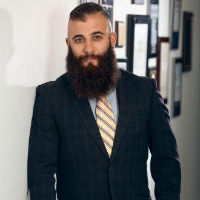Flint DUI-DWI Lawyer, Michigan
Sponsored Law Firm
-
 x
x

Click For More Info:
-
The Williams Law Firm
411 W Lake Lansing Rd Ste C-110 East Lansing, MI 48823» view mapCriminal Defense Law A Defense Lawyer With Proven Results
Knowing the law certainly is a necessary prerequisite but an attorney’s ability to effectively communicate is perhaps his or her paramount importance.
800-945-0701
Nicholas Somberg
✓ VERIFIEDDUI-DWI, Criminal
Nicholas Somberg is a practicing lawyer in the state of Michigan handling criminal defense cases.
FREE CONSULTATION
CONTACTFREE CONSULTATION
CONTACTMark A. Satawa
Domestic Violence & Neglect, DUI-DWI, Criminal, Constitutional Law
Status: In Good Standing
FREE CONSULTATION
CONTACTThomas M. Donnellan
Family Law, Child Custody, Divorce & Family Law, DUI-DWI
Status: In Good Standing Licensed: 57 Years
FREE CONSULTATION
CONTACT Richard L. Williams East Lansing, MI
Richard L. Williams East Lansing, MI Practice AreasExpertise
Practice AreasExpertise

